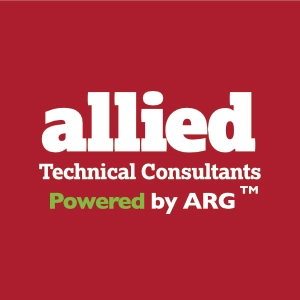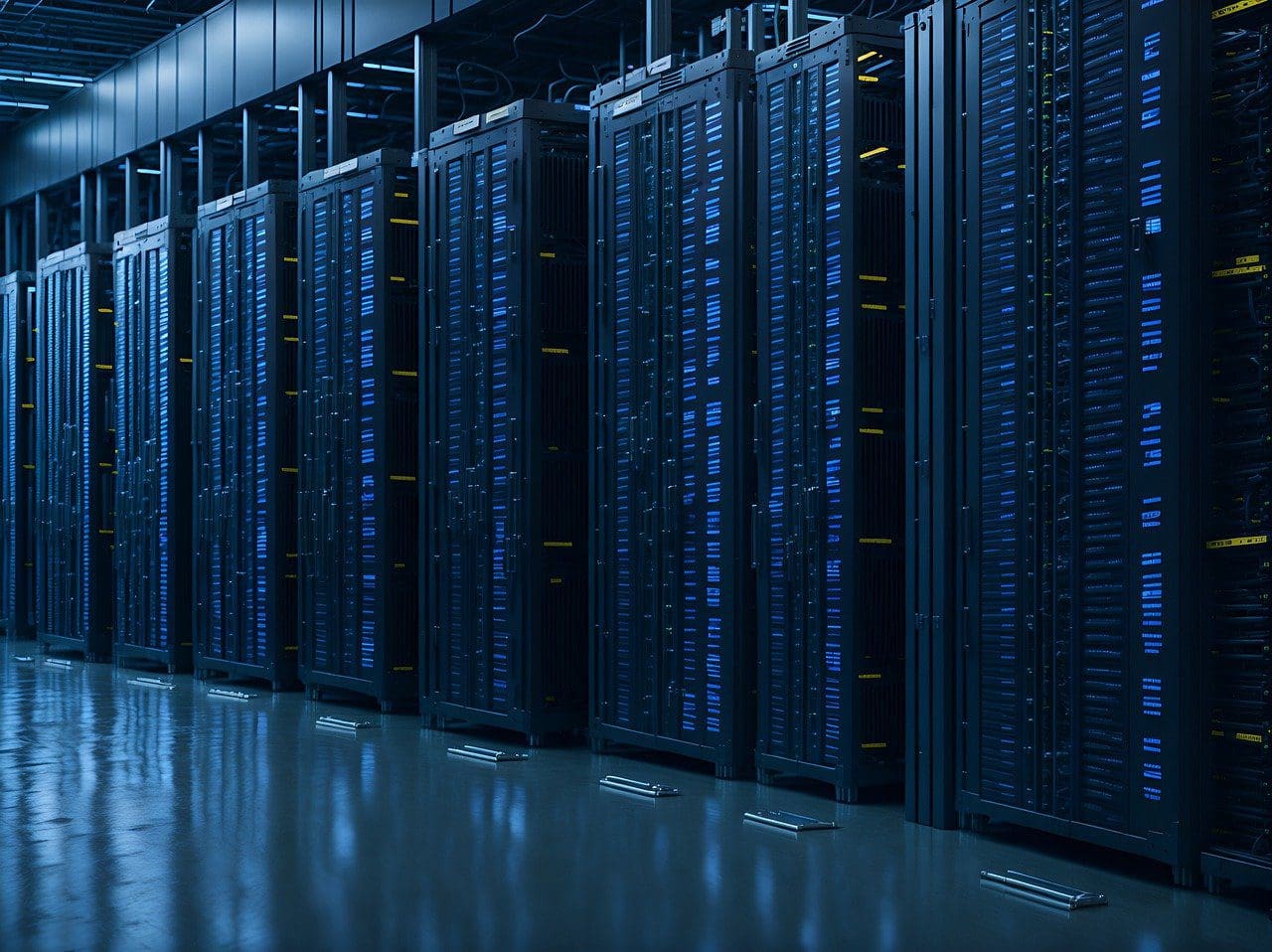As the digital economy continues to expand rapidly, the demand for data centers is soaring. These facilities support everything from cloud storage to enterprise applications, gaming, video streaming, and real-time communication platforms. To meet this growing need, data centers are evolving with new innovations in energy efficiency, technical infrastructure, and sustainability.
One of the most significant challenges in this expansion is ensuring a sufficient and specialized workforce to support the development, operation, and maintenance of these facilities. The demand for power generation, construction, and pipeline-related jobs has grown significantly as data centers increasingly rely on sustainable and reliable energy sources.
Why Data Centers Are Crucial to the Digital Economy
Data centers are the backbone of the modern digital economy, providing the critical infrastructure required to store, process, and manage data. From AI and machine learning to video streaming and e-commerce, data centers handle vast amounts of information that power our daily activities. As the world becomes more interconnected, data centers must scale to accommodate larger volumes of data and adopt cutting-edge technologies to remain competitive.
The role of energy infrastructure is vital in this equation. Data centers require significant, continuous power, and the need for reliable, sustainable energy sources is more important than ever. While many data centers are powered by renewable energy sources like solar and wind, there are still significant challenges in fully integrating these into large-scale operations.
Staffing Challenges in Data Center Construction and Operations
The growth of data centers creates a complex landscape of staffing challenges, particularly in the areas of power generation and construction. The demand for skilled professionals spans various fields, including:
- Power Generation: Data centers require massive amounts of energy, and the construction of the necessary infrastructure is essential for their operation. As the industry increasingly focuses on sustainability, there is a growing demand for professionals who specialize in power generation systems, including engineers with expertise in renewable energy sources like solar, wind, and hydroelectric power. These roles require a deep understanding of power systems, energy distribution, and grid integration.
- Cooling and HVAC Systems: Energy-efficient cooling technologies are essential for maintaining optimal operating conditions in data centers. Engineers with expertise in HVAC systems and liquid cooling technologies play a critical role in reducing the carbon footprint of these operations while maintaining system reliability and performance. As data centers expand and demand increases, these cooling infrastructure jobs will continue to be in high demand.
- Construction and Infrastructure Development: Building a data center involves complex construction and infrastructure development, including everything from the physical structures to the power lines and data cabling systems that connect them to the grid. Jobs in power generation construction and pipeline infrastructure are critical to powering these large-scale operations. Professionals in these fields help build the foundational systems required to support data centers’ energy needs, ensuring that power is delivered effectively and sustainably.
- IT and Network Infrastructure: While physical power infrastructure is essential, data centers also require specialized IT professionals to design, maintain, and secure data networks. As data centers become increasingly automated and interconnected, roles in network infrastructure, storage management, and cybersecurity are expanding.
The Need for Multi-Disciplinary Talent
A growing trend in data center staffing is the need for multi-disciplinary talent. The integration of IT infrastructure with physical systems like power generation and HVAC requires a workforce that is well-versed in multiple fields. Engineers must collaborate across disciplines, combining knowledge of electrical systems, mechanical systems, and IT to ensure data centers run smoothly, securely, and efficiently.
The cross-functional nature of these projects highlights the need for professionals who can work across domains, combining technical knowledge with practical operational experience. Whether building the power generation systems that fuel the data centers or maintaining the cooling infrastructure, multi-disciplinary teams are essential to the future of the industry.
Power Generation Infrastructure and Jobs
A key component of the data center industry’s expansion is the integration of reliable, sustainable power generation infrastructure. As data centers demand more energy, the jobs related to power generation construction and pipeline installation become increasingly important. These roles involve developing and maintaining the power systems that supply the vast amounts of energy needed for modern data centers.
The infrastructure required to deliver power to data centers includes power plants, substations, transmission lines, and pipelines that transport natural gas or other fuels to power generation facilities. This type of infrastructure construction is a critical part of meeting the energy demands of large-scale data centers and ensuring their long-term viability.
In addition to traditional energy sources, there is an increasing focus on incorporating renewable energy solutions into data center operations. This includes leveraging solar, wind, and hydroelectric power as sustainable energy sources. The demand for professionals skilled in energy management, renewable energy systems, and energy grid integration will continue to rise as data centers increasingly seek to reduce their carbon footprints.
Sustainability and Green Data Centers
As concerns about climate change and energy consumption grow, sustainability has become a key consideration in the design and operation of data centers. The transition to green data centers, which rely on renewable energy sources and energy-efficient technologies, is reshaping the industry.
While renewable energy sources such as solar and wind power are integral to powering data centers, there are still challenges in scaling these solutions. Solar energy is not always reliable due to intermittent and the high initial costs of infrastructure. However, many data centers are working to integrate these technologies alongside traditional energy sources to reduce their carbon footprints. Innovations like liquid cooling systems and efficient HVAC technology are helping to optimize energy use and minimize environmental impact.
The push toward green data centers are not just about power generation; it’s also about the workforce needed to support this transition. Engineers with expertise in renewable energy, energy efficiency, and sustainable building practices will be in high demand as data centers continue to innovate and seek new ways to reduce their environmental impact.
Looking Ahead: A New Era of Data Center Staffing
As the digital economy expands, the demand for skilled professionals to support data center infrastructure will continue to rise. Businesses will need to embrace a multi-disciplinary approach to staffing, focusing on professionals with expertise in power generation, cooling technologies, IT infrastructure, and renewable energy systems.
By attracting and retaining top talent across these fields, data center operators can stay ahead of the curve and ensure that their facilities are energy-efficient, sustainable, and capable of meeting the growing demands of the digital economy. From power generation engineers to IT experts, the right talent will be crucial to the success of data center operations in the years to come.
Data centers will remain a cornerstone of the digital revolution, but only if they are supported by skilled professionals who can ensure these facilities run smoothly, efficiently, and sustainably.
Citations & References
- “Data Center Market by Type, by End-User, by Region – Global Forecast to 2025”. (2021). MarketsandMarkets. Retrieved from https://www.marketsandmarkets.com
- “The Future of Data Centers: Sustainability, Efficiency, and Innovation”. (2023). Data Center Frontier. Retrieved from https://www.datacenterfrontier.com
- “Trends in Data Center Cooling: From Air to Liquid”. (2023). Uptime Institute. Retrieved from https://www.uptimeinstitute.com
- “Talent Shortages in Data Centers: How to Address the Growing Workforce Demand”. (2022). Data Center Knowledge. Retrieved from https://www.datacenterknowledge.com
- “The Green Data Center: Sustainable Technologies for Powering the Future”. (2023). Data Center Dynamics. Retrieved from https://www.datacenterdynamics.com
- “The State of Data Center Industry 2025”. (2025). International Data Corporation (IDC). Retrieved from https://www.idc.com
- “Data Center Growth and the Future of the Industry”. (2023). Network World. Retrieved from https://www.networkworld.com
- “The Role of Renewable Energy in Data Center Operations”. (2023). GreenBiz. Retrieved from https://www.greenbiz.com
- “Renewable Energy in Data Centers: Meeting the Challenges of Integrating Green Power”. (2024). Energy.gov. Retrieved from https://www.energy.gov
- “Powering the Future of AI Data Centers: Energy and Infrastructure”. (2024). Energy Central. Retrieved from https://www.energycentral.com
- “The Role of Energy Infrastructure in Data Center Construction”. (2024). Construction Dive. Retrieved from https://www.constructiondive.com

